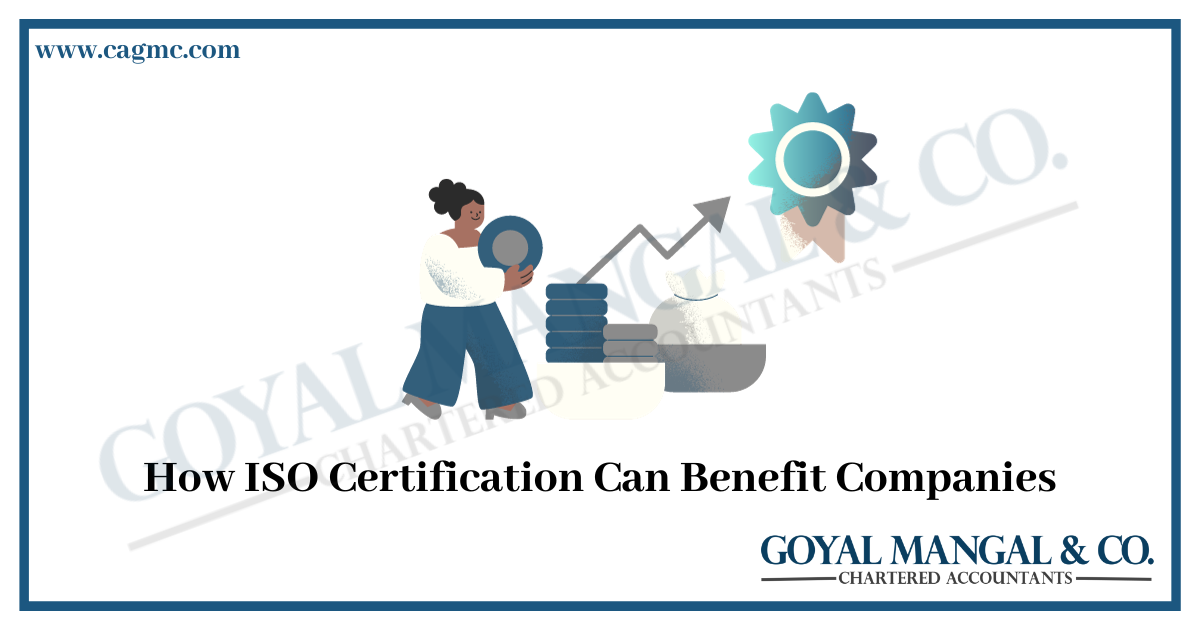
ISO Certification Can Benefit Companies is a globally recognized standard that demonstrates your organization meets rigorous quality management criteria. ISO certification is a crucial asset for businesses looking to survive in today’s competitive global marketplace. It represents a dedication to excellence, quality, and efficiency. In this article, we will look at how ISO certification can give significant benefits and advantages to businesses of all sizes and industries.
Table of Content
What does ISO certification mean?
ISO certification certifies that a company adheres to internationally recognized quality, safety, and efficiency standards in its operations and products. It indicates a dedication to excellence, which increases customer trust and competitiveness. ISO certification can help your company by raising product quality, increasing customer happiness, minimizing errors, improving risk management, and expanding worldwide market opportunities. ISO accreditation is a great tool for long-term growth and success since it promotes operational efficiency, streamlines operations, and eventually leads to higher profitability.
Advantages of ISO certification
When you deal with an ISO-accredited organization, they can provide a variety of services to help your business thrive. They may provide staff training and hire consultants with relevant knowledge in specific areas to ensure that the firm is always up to date on current best practices across industries.
An ISO-certified company is one that has been inspected and deemed to meet the standards of a certain international standard by an independent certifying agency. Working with an ISO certified organization has numerous advantages, including:
- Reliability: Companies that have received ISO certification can benefit company as to become reliable players in their market. They may be confidence in the quality, safety, and longevity of their products because this certification process has demonstrated how much care is taken to ensure that these items comply with international legislation. It also shows that your firm adheres to the standards established by companies like yours who take themselves seriously enough not just for today, but also for tomorrow.
- Improved quality: ISO standards assist firms in improving the quality of their services, managing projects more effectively, and entering new markets. This is advantageous since it ensures international requirements for cross-border interoperability, enhancing consumer confidence in your company’s goods or services. For products, it denotes high levels of excellence that have been cultivated over time through rigorous testing procedures tailored to each industry sector in which these products will be used.
- Improved performance: The introduction of ISO standards has helped many organizations enhance their performance by providing them with the essential knowledge to optimize their operations. When applying this form of criterion, it is advantageous for satisfied consumers, efficient ways of functioning, and establishing new working practices more swiftly than before.
- Increased Revenue: ISO certification has enabled firms to reach global markets and deal freely with other enterprises all over the world.
- Customer Satisfaction: Customers are more likely to be satisfied with the products or services they receive from an ISO-certified company.
- Increased competitiveness: Because an ISO-certified company is perceived as a reputable and trustworthy supplier, it can be more competitive in the marketplace.
- Accountability: ISO-certified businesses must follow tight criteria and are audited on a regular basis. As a result, they will be held responsible for their obligations and actions.
How much does ISO certification cost?
The cost of ISO Certification Can Benefit Companies varies depending on the organization. The ISO certification services provider will calculate the ISO certification cost for the organization based on the number of employees, risk levels, management apparatus complexity, and number of shifts. To choose the appropriate ISO certification, there are two components involved. Firstly, one need to choose the ISO certification that is in fact applicable to the business plans. Depending on the types of ISO certifications cost varies, the types are:

- ISO 9001:2008 – Quality Management System
- ISO 27001 – Information Security Management System
- ISO 10002 – Compliant Management System
- ISO 26000 – Social Responsibility
- ISO 22008 – Food Safety Management
- SA 8000 – Social Accountability
- SO 13485 – Medical devices
- ISO 20121 – Sustainable events
Process to get ISO Certification
The ISO certification process consists of a few major elements, including the completion of an application form, document review, and rigorous auditing procedures. The following is a broad overview of how to apply for and register an ISO for a business or product:
- Applying: After selecting an appropriate ISO certification for a product or business, the applicant must fill out an application form and submit it to the registrar via letter or email. The application must include critical information such as the scope of the certification, general information about the organization, including its characteristics and general information, and the sought certification standards.
- Document Review: Following the submission of the application form, the auditor will review the numerous papers pertaining to quality control as well as the organization’s various policies and processes.
- Pre-assessment: During the pre-assessment stage, the entrepreneur must conduct or have a review of the pre-existing quality control standards in his/her organization to detect any omissions or flaws in the quality management policies.
- Action Plan: Following the auditor’s initial evaluation and discovery of flaws in the organization’s existing quality control standards, he/she will need to analyze these comments and rectify the existing defects. This covers the action plan.
- First Audit: The first audit stage involves a thorough review by the auditor of existing and revised quality controls, and non-conformities are classified as minor or major non-conformances.
- Final Audit: All major non-conformities must be removed by the final audit stage, and if all quality gaps have been addressed and fixed, the ISO auditor will write the final audit report and transmit the ISO certification application to the ISO registrar.
- Obtain an ISO Certificate: The registrar will issue the ISO Certificate once all non-conformities have been remedied.
Effect of ISO Certification
ISO certification increases competitiveness by opening doors to new markets and commercial prospects. It boosts employee morale, collaboration, and accountability. Once a company is ISO certified, it may promote its quality certification and reply to firm requests for bids, making the ISO certificate a must-have. Because ISO provides globally accepted certificates and standards, firms can leverage new market prospects that they could not do business with before becoming ISO certified. This can lead to increased amount of profitability, progress, and long-term success for your business. ISO certification can benefit companies by not only enhancing credibility and increasing customer trust but also improving product quality and safety. It improves risk management by streamlining processes, reducing errors, and streamlining processes.
Conclusion
So, ISO certification can greatly help businesses in a variety of ways. It is a compelling evidence to a company’s commitment to quality, safety, and efficiency, and it improves its reputation and credibility. ISO-certified companies frequently experience enhanced consumer trust, which leads to increased customer satisfaction and loyalty. Furthermore, ISO standards drive process improvements, lowering errors, improving risk management, and increasing operational efficiency. Aside from making your firm stronger, more effective, and productive today, ISO can also make your company more appealing to purchasers when the time comes to sell. Finally, ISO certification can pave the road for long-term growth and success in today’s competitive business environment.







